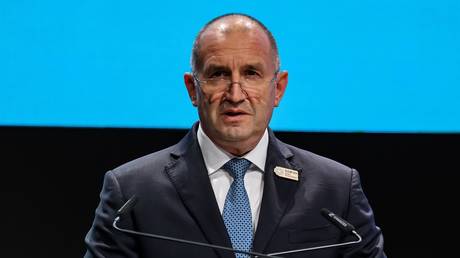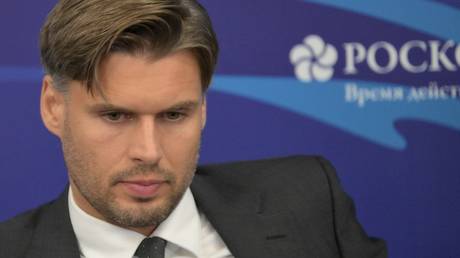Koye Adeboye is the Head of Communications at the Spotlight Initiative, the UN’s high-impact initiative to end violence against women and girls. A multilingual communications manager with a proven track record, Koye leads global communications and public relations, bringing expertise in project management, corporate communications, media engagements, journalism, social media, knowledge management, speech writing, and event management. His experience spans country, regional, and global levels, including previous roles as a Communications Specialist at the United Nations Population Fund and in corporate communications with the UN Volunteers program. Mr. Koye visited Eritrea last week. Following are excerpts of an interview conducted with Him.
* * *
What are your initial impressions of Eritrea, and how do they compare to the narratives you encountered before visiting here?
So it’s been 11 days now; I am a full-blown Asmarino. It’s a beautiful city, and the people are wonderful and friendly. In terms of how it compares to the narratives from the outside, definitely, whatever you are learning or hearing about is very different from what’s here. And this is where work has to be done. We need to do a better job of telling the story of this country, especially on the outside. As a communications person, you don’t want other people to define you; you want to be able to describe yourself. So I encourage everyone to visit.
So, what kind of narratives have you heard so far?
The real issue is that there isn’t much of a narrative but much of an absence. When telling folks that you’re going to Eritrea, the first thing that comes to mind is, where is Eritrea? It is a new country, so of course, it needs time. But there needs to be a bit more, especially using social media. The audience on social media is mostly outside. How do we then leverage that audience so that they become our champions to tell different stories and more balanced narratives of the country? It’s one of the things I explored while I was here.
You have had a training session/workshop with the Ministry of Information personnel here. Your training sessions have focused on leveraging social media, so what are some of the key strategies you shared with Eritrean media personnel and UN communications experts to effectively use their platforms?
So, I focused on two keynotes. One is knowing your audience. All of us are guilty of this. We have an idea of who our audience is, and we communicate and think we’ve succeeded in that. So we went deep diving into the data on who actually follows the account from Shabait to the other accounts that the Ministry runs. We developed a marketing persona, which is a marketing tactic. So it’s typically a 35-year-old man who lives in Sweden, is married, and a father of two who watches football on the weekends; that kind of detail helps find out who your audience actually is. Once you understand, you can design content and information for them. The second part would be about how we could use some of the things we are doing already. How do we optimize? For example, the TV shows and the radio programs that you have. Why don’t we also turn these into podcasts to reach a different audience in the diaspora? It’s not much additional work; you extract the audio file and put it on a different platform to get a whole new group to learn about the country and see what’s happening. Those are some of the strategies we mentioned.
I hope it was helpful. It was a learning experience for me to learn about the communications environment here. And hopeful the ministry found some of the tools useful. However, for us at the UN, this is the beginning of an engagement process to support the ministry.
Was there a positive interaction with the personnel who attended the training session?
Absolutely. I was shocked by the engagement rate numbers. For example, on Twitter, X says 11.2%, which is unheard of. This is good and positive. And I told the folks there to give seminars worldwide on getting an 11.2 % engagement rate. So many things are happening here that are very good, and others can learn from them as well.
One of the challenges that many countries face is controlling their own narrative. What advice would you give the Eritrean media personnel on how to tell their stories authentically and counter potential biases, particularly on social media?
First authenticity. Audiences around the world can sniff if something is fake. So you have to tell the honest truth as much as possible to have that credibility and authenticity with the audience. Second, there is a realization now that no matter how good you are, telling your story is less effective than third-party endorsement. So, who are the other people that the public or an audience can see? They don’t have any skin in the game, but they are telling me something here. I am more likely to believe someone else talking about you being a good person than you telling me that you’re a good person. So, how do we leverage potential allies and champions in the diaspora or anywhere else in the world to tell the story of Eritrea positively? The UN can be helpful in the process. Zeinab Badawi was here recently looking into a documentary potentially about African stories for African voices. Someone telling that to an audience that would know can be compelling. And as part of the strategy, that is a key part that needs to be built in; no matter what you’re doing as a Ministry and Government, you need additional people to tell your messages to different audiences.
Misinformation and disinformation are rampant on social media. What strategies can media personnel and communication experts apply to identify and combat these challenges?
The bad news here is that it’s going to get worse. The platforms recently announced that they are moving content moderation teams- Meta across all the platforms of Facebook and Instagram- human beings who would investigate whether this is hate speech or misinformation. They fired all of them, and now they are going to rely on something called third-party checks. So it’s going to get worse. My advice would be to worry less about that because it’s something you can’t control. You cannot control it even if you’re constantly telling the truth. It’s going to happen. The more it happens, the less powerful it is as the audience gets used to it. More importantly, you have to define your narrative before it gets defined for you. That way, the audience knows who you are and where you’re going, and when the information comes, it’s not as sticky because it had some impression already as opposed to no impression at all; it is all about being proactive to tell the story as opposed to being reactive and counter-narratives when it’s already happened.
What communication strategies are essential for Eritrea to effectively communicate its stories to the world and foster balanced understanding?
Besides spending tons and tons of money on substantial publicity events and PR engagements, which are not necessarily in scope, social media is critical. So, are you not just running your accounts, but how are you also leveraging influencers to get your messages and speak to their audiences in that language? For instance, if it’s related to tourism, have diaspora people with huge social media influence tell stories about Eritrea. There is a lot that can be done and explored.
From your experience working with various countries and organizations, what are some of the common miscommunication challenges you’ve observed, and what are some of the most effective solutions you’ve seen implemented?
The big one is always communications as an afterthought. Let’s have this big idea or initiative to do and get all the funding together, but communication is always the last thing. In today’s world, no one knows if you’re doing something amazing and cannot communicate it effectively. Communication should be at the start of any initiative and idea.
What are your overall impressions of your visit here in Eritrea?
I can’t wait to come back. In two weeks, I have been overwhelmed by the hospitality, not just from the people but the ministries, and the doors have been opened to us in a way that I have never experienced anywhere else that I’ve been. It shows that the government is committed and wants to find opportunities to have better communication strategies and partnerships with the UN. I hope that we can deliver based on the expectations that the government has of us.
Thank you!





+ There are no comments
Add yours